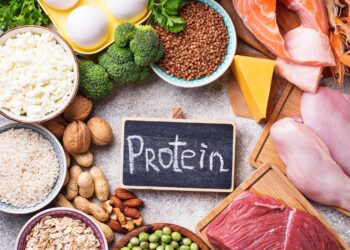One of the most sought-after and fool-proof ways of losing weight is pursuing one of the most popular diet strategies as of now: intermittent fasting. The whole idea is to only eat at specific time intervals, mostly after 12-16 hours per day, thoughts some fasts can last longer for up to 24 hours.
Green tea is a popular herbal tea with proven scientific benefits ranging from excessive weight loss, managing blood sugar levels, and aiding in digestion to treating and preventing a plethora of ailments including cancer. The question for most people engaging in intermittent fasting is: will consumption of green tea break a fast?
Why green tea will not break your fast?
Generally, the rule of thumb is, that unless you consume equivalent or more than 50 calories, you remain fasted. A cup of brewed green tea has approximately 2.4 calories, which is not enough to break a fast.
Experts recommend that you can have three to four cups of tea without breaking your fast. That may come as a sigh of relief for green-tea lovers who are practicing intermittent fasting.
Green tea and intermittent fasting
Green tea contains bioactive substances such as caffeine and catechins, both of these increase the body’s energy and metabolism. The result is, that its consumption would lead you to burn more calories during your fasting period.
Another advantage of drinking green tea is that it balances hormones such as leptin and ghrelin, these hormones help manage your hunger and satiety levels. Hence, drinking moderate amounts of green tea can help suppress hunger.
The wonderful benefits of green tea during fasting

Intermittent fasting is a powerful weight loss strategy and incorporating brewed green tea also strengthens its benefits. Courtesy of its various chemical compounds such as catechins, caffeine, theaflavin, theanine, and many others, green tea shows significant antioxidant and anti-inflammatory activity in the body.
Studies have proven that green tea can also help with neuroprotection, and cellular regeneration while also reducing the risk of both infectious and chronic diseases. Green tea is often touted to have anti-aging effects. Green tea is also known to have detoxifying effects on the body, it is a potent herb that neutralizes free radicals and reduces oxidative stress.
The combined effects of green tea make it a potent drink to recycle cellular material. It is very effective in reducing the risk of both chronic and infectious ailments. Considering the abundance of health benefits that green tea has to offer, it synchronizes well with intermittent fasting.
Other Traditional Teas to Consider during intermittent fasting
Granted, green tea does not break a fast. What about other herbal teas and decoctions? Let’s dig into it. Other traditional teas and drinks to consider while intermittent fasting is hibiscus tea, peppermint tea, chamomile tea, ginger tea, and diluted apple cider vinegar. All of these help effective weight loss during your intermittent fasting regime without breaking your fast.
Let’s go through some of their benefits one by one.
Hibiscus tea
Rich in vitamin C, beta-carotene, and anthocyanin, hibiscus tea not only is a potent anti-inflammatory, but can also fight high blood pressure, lower cholesterol, and fight pathogenic bacteria in the body. To top it all, it promotes weight loss and supports liver health.
Peppermint tea
Perhaps of the most potent teas to treat digestive ailments including ulcers and other inflammatory conditions, peppermint tea is a must in your health artillery. The fragrant tea freshens your breath and relieves symptoms of sinusitis and menstrual cramps. Furthermore, it is a potent antibacterial and helps with anxiety.
Chamomile tea
Traditionally used to promote relaxation, alleviate anxiety and promote restful sleep, chamomile tea is more than your regular sleep aid. Not only does it reduce inflammation, treat skin conditions, and reduces menstrual pains, chamomile can prevent osteoporosis and keep blood sugar levels in check.
Ginger tea
Ginger tea can help provide relief from motion sickness, nausea, and digestive ailments. Ginger tea has potential antimicrobial and anti-infective properties. It helps soothe a sore throat, reduce inflammation in joints, and regular blood sugar levels.
Apple Cider vinegar
Apple cider vinegar has the potential to kill harmful pathogens, including bacteria, viruses, and fungi. It is a powerful topical antiseptic and disinfectant. Regular consumption of apple cider vinegar has been shown to regulate blood sugar. It also boosts stomach acid regulation and has prebiotic properties, it is, therefore, friendly to the gut microbiome.
Can additives in green tea break the fast?

Usually, three to four cups of green tea in a day is unlikely to affect your fasts. However, adding sweeteners such as sugar and honey will trigger an insulin response, eventually breaking your fast.
The insulin response will also halt the intermittent-fasting-induced cellular repair process called “autophagy” (the body’s natural way of cleaning out damaged cells and regenerating new ones).
Even the tiniest bit of a sweetener such as sugar, honey, or no-calorie sweetener, will initiate an insulin response. So the final verdict is: to avoid adding sweeteners to your green tea.
What about milk in green tea?
The addition of milk in warm green tea will also break your fast. That is because milk of any kind, be it skimmed or low fat, does contain an abundant amount of calories. A cup of no-fat milk has about 90 calories. Green tea lattes also contain milk, and consumption of those will lead to breaking your fast.
Final verdict
Green tea, if consumed without additives such as sugars, other sweeteners, and milk, will not break your fast. The recommended amount of consumption is about 3-4 cups a day. Green tea has caffeine, and the higher quality brands will have more than usual. Excessive caffeine intake can result in restlessness and insomnia. You would want to attain a healthy amount of sleep for maximum benefits during your fasting states.
So it’s best to consume green tea in moderation, especially while fasting. But, all in all, green tea is a healthy drink and can be incorporated into your intermittent fasting regime.








